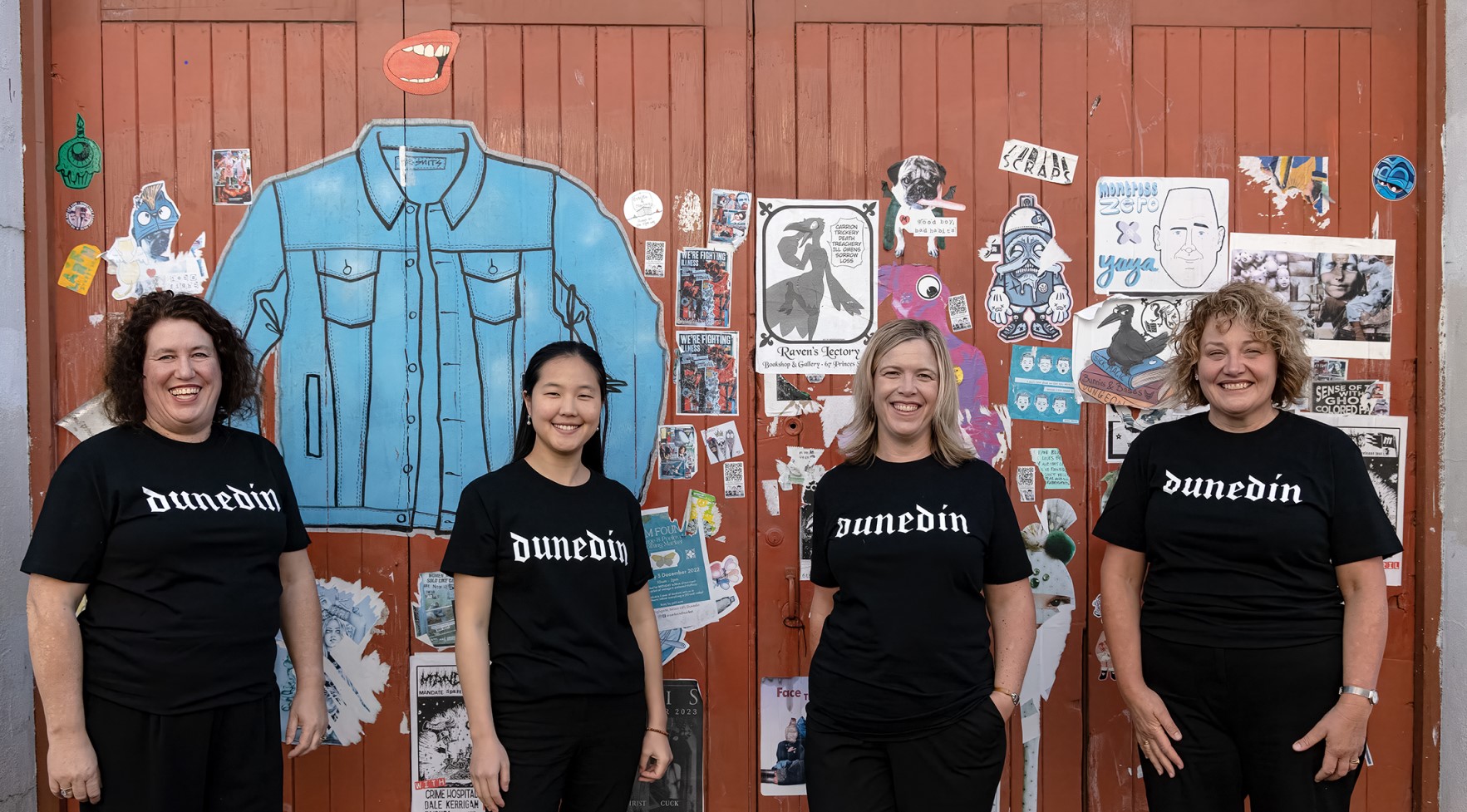Pictured DCC’s In-House Legal Team (L-R): Karilyn Canton, Candy Yoo, Nadia McKenzie and Eleanor Bunt.
Can you give us an overview of the legal function of Dunedin City Council and how it supports the work of the council?
DCC's In-House Legal Team was formed in 2017, initially with two lawyers. Since forming, we have grown to a team of four lawyers and an executive assistant.
The legal function at DCC is to provide accurate, timely, candid and professional advice on a wide range of issues. We support DCC in promoting and achieving its objectives to enhance cultural, environmental, social and economic wellbeing across the City.
No two days are the same in DCC's legal team. The range of things that we advise on is broad- everything from high value contracts to dogs and parking. We're involved in many of DCC's major projects. As part of those projects, we're often involved in commercial negotiations, instructing external solicitors, writing reports to Council, advising on risk minimisation, purchasing land, preparing contracts etc.
Some of the recent (and public) things we have been involved with include buying Foulden Maar (a geological site of international significance), advising on DCC's Waste Futures Project (alongside external solicitors), writing submissions on recent reforms (including the 3 Waters reform) and advising on FIFA contracts. We represent DCC in Court on routine matters and assist in more complex matters.
What does the team do to build and enhance the influence of the in-house legal function across the organisation?
Perhaps we are not what might be considered a "traditional" legal team. We've been described as "raucous" because there's a lot of laughter and banter in our office. We're known as "KC and the Sunshine Band" – after the 1970s disco band that sang "That's the way we like it." This came about because it's our CLO's initials (Karilyn Canton), and it seems to have stuck!
Enhancing our function across the organisation means fostering and managing positive relationships with teams across Council and from outside the organisation. Some of the things we do to build and enhance the in-house legal function are:
- Minimising barriers to getting legal advice. We try to be approachable so that DCC staff are happy to seek advice at an early stage.
- We have each developed specialist areas of practice. This means that when we are asked for advice on a particular issue, there is usually someone within the team with specialist knowledge relevant to the issue.
- We work with teams across the whole Council, ranging from the regulatory teams to the finance team, to the art gallery and library. As a team that works across the whole organisation, we can often help make connections so that there is a consistent and co-ordinated approach by teams.
- We aim to empower DCC staff by providing staff training, and templates to improve the quality of DCC's documentation.
- We focus on providing clear and comprehensive instructions to DCC's external lawyers. We work closely with our external lawyers and are often working on projects together.
Most of all, we focus on being collaborative, professional, knowledgeable, and innovative drivers for making positive changes to staff competency and capability.
What are the key challenges facing the team and how do you plan to address these?
The main challenge facing our team is how best to manage the volume and complexity of the work in a timely and professional way. We are a relatively small legal team for a local authority, so we are constantly juggling a high volume of work that seems to be increasingly complex. This means that we need to "work smart" and ensure we have outstanding external lawyers (which we do), good systems and technology that makes our job as easy as possible.
We will continue to focus on empowering and training staff, developing templates (including the automation of those templates) and on having systems for routine matters. We are also proactively looking at what matters can be dealt with in batches. For example, we have recently completed a process of updating Records of Title that were still in the name of former Borough Councils.
We will also continue to invest in our own training, as we see this as being essential to providing accurate, timely and professional advice.
Are there any changes or new technologies the team plans to roll out in the next 12 months?
DCC's legal team uses an information sharing platform called LawVu. This allows DCC's internal legal team to see all legal files – irrespective of whether the matter is being dealt with by our external or internal lawyers. The system is set up so that the DCC's internal or external lawyers can open a file and upload material. We use the programme mainly to keep track of all our files and to share information, but we are conscious that the programme has a lot of functions that we are not currently using. We are looking forward to trialling the additional functions this year.
As both Dunedin City and Council grow, DCC Chief In-House Legal Counsel Karilyn Canton says she hopes the team will continue to provide outstanding services to teams across the organisation; improving relationships, competency, and legal awareness as they go.
